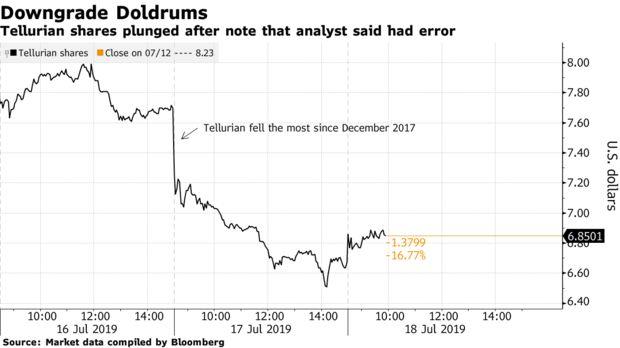Presidential candidate Elizabeth Warren wants the federal government to provide free health care for every American, child care for every parent, college for every student who wants it, and housing for low-income families. And she wants to pay for it all with a new tax on the richest of the rich. She calls it the “ultra-millionaire tax.”
Skimming a bit more off the top of the bank accounts of the ultra-wealthy might sound like a good deal for working- and middle-class Americans. But the reality is that wealth taxes have been tried before, and they haven’t worked the way Warren promises.
Warren wants to levy a 2 percent annual wealth tax on all households with a net worth of over $50 million and a 3 percent annual tax on those households with a net worth of more than $1 billion. Unlike an income tax or a sales tax, both of which tax money when it moves around, a wealth tax draws on the same pot of money every year, making the pile smaller and smaller over time. It’s essentially a tax on large savings—the money that investors and entrepreneurs rely on to start new businesses.
Unlike Rep. Alexandria Ocasio-Cortez (D–N.Y.), Warren has never said that the very existence of billionaires is immoral, but her plan to tax 2 to 3 percent of their wealth on an annual basis is clearly motivated, at least in part, by a desire to reduce their wealth and what she perceives as a power imbalance in our society. The economists who helped Warren design her plan have said that the idea is to make rich people less wealthy: “If very rich people have to pay a percentage of their wealth in taxes each year, it makes it harder for them to maintain their wealth.” Analyzing her plan, they wrote that one of its “key motivations” is “to curb the growing concentration of wealth.”
So this isn’t really about raising tax revenue. It’s about using government power to make sure rich people have less. Still, Warren often pitches her plan as a way to raise money to pay for more government entitlements. And on that count, it’s likely to fall short.
Warren says her tax plan will raise $2.75 trillion over a 10-year period. But other countries have tried wealth taxes and found that they raise far less money than expected.
In 1990, there were 12 OECD nations with wealth taxes similar to Warren’s. Today, only four remain. Though politicians like Sen. Bernie Sanders (I–Vt.) praise Denmark and Sweden as paragons of democratic socialism that the U.S. should emulate, both nixed their wealth taxes in the ’90s because too many rich citizens were just pulling their money out of the country. This capital flight resulted in lower rates of entrepreneurship and relative economic stagnation.
Not only did the wealth tax hurt the economy, but it didn’t even raise the money it was supposed to. When Sweden eliminated its wealth tax, it had virtually no effect on government finances, according to the Financial Times.
France tried a wealth tax for more than a decade, starting in 2000. That helped push an estimated 42,000 millionaires out of the country. They didn’t pay the tax—they just left.
Warren wants to get around the capital flight problem by taxing the money no matter where in the world it’s located and imposing a 40 percent exit tax on anyone in this category who wants to renounce his or her citizenship.
This part of the plan relies on hiring more IRS agents, partly to deal with the complexity of evaluating total individual wealth. But throwing more tax collectors at the problem isn’t going to change the fact that the wealthy are very good at protecting their money by offshoring it or putting into unique, hard-to-value assets like artwork. Austria is another country that used to have a wealth tax. One reason it dropped the tax was because the cost of enforcement was so high.
Given its failure in other countries, and her outlandish and vague proposals for addressing those failures, there is no compelling evidence that Warren’s “ultra-millionaire tax” will raise the revenue she claims.
The wealth tax is best understood not as a targeted revenue raiser, but as a symbolic declaration of opposition to the existence of outsized wealth, regardless of how it was obtained. Warren has described her tax as a tool for addressing inequality, but it’s really just a presidential candidate’s way of saying, “I oppose the existence of very rich people.” She could have just said it.
Watch the full video above. The original article upon which this video was based is available here.
Produced by John Osterhoudt, based on an article by Peter Suderman.
Additional graphics by Josh Swain.
Photo of Sen. Warren; credit: F. Carter Smith/Polaris/Newscom
Photo of Sen. Warren; credit: Richard Ellis/ZUMA Press/Newscom
Photo of Sen. Warren; credit: Kevin Dietsch/UPI/Newscom
Photo of Sen. Warren; credit: Derrick Salters/WENN.com/Newscom
Photo of Sen. Warren; credit: Brian Cahn/ZUMA Wire/Newscom
Photo of Sen.’s Warren and Sanders; credit: Tom Williams/CQ Roll Call/Newscom
Photo of Perry Mansion; credit: CelebrityHomePhotos/Newscom
Photo of IRS Sign; credit: Molly Riley/McClatchy DC/TNS/Newscom
Photo of Fredensborg Palace, Denmark; credit: hbgbild/MEGA/Newscom
Photo of Malmo City Library, Sweden; credit: Armand Tamboly/robertharding/Newscom

from Latest – Reason.com https://ift.tt/2LttcQa
via IFTTT



